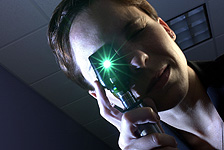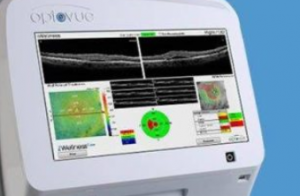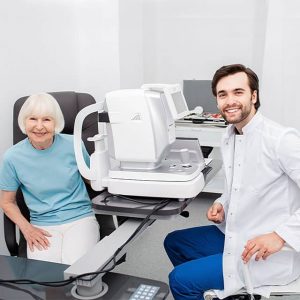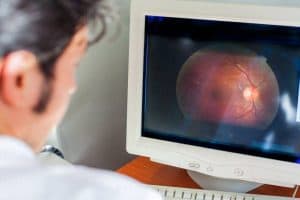Treatments for Eye Floaters
If eye floaters are affecting your vision, effective treatments are now available to give you relief. Eye floaters cause visual disturbances and can become so
Read MoreGuide to Low Vision Devices
With the large variety of low vision devices now available on the market, our guide will help you choose a magnifier that best suits your
Read MoreEye Floaters: Should I Worry?
Eye floaters can be a sign of serious disease, but now eye doctors can successfully treat with a range of very effective options. What are
Read MoreDiabetes: Why You Shouldn’t Skip Your Eye Exams
Annual eye exams can prevent 95 percent of vision loss. Diabetes affects around 10 percent of the American population, yet nearly 60 percent of people
Read MoreTinted Lenses for Color Blindness
An estimated 1 in 12 men and 1 in 200 women has some degree of color blindness. Color blindness is not an actual blindness, but
Read MoreA Deeper Understanding of Diabetic Retinopathy
Diabetic retinopathy is the leading cause of vision loss among people with diabetes. If you have been diagnosed with diabetes, it is critical to ensure
Read MoreWhat Is an OCT Eye Exam?
An optical coherence tomography scan (OCT scan) is a critical device for the early diagnosis of many serious eye conditions. An OCT eye exam is
Read MoreWhat Is a Digital Retinal Image?
Digital retinal imaging (DRI) is a quick and painless way for your eye doctor to look inside your eye and track changes to your ocular
Read MoreWet Macular Degeneration (AMD)
Wet AMD accounts for approximately 10 percent of all AMD cases, but is responsible for 90 percent of legal blindness. Wet AMD develops as a result of abnormal blood vessels that form under the retina, and leak blood and fluid into the macula. Wet AMD is the more advanced stage of AMD, with dry AMD usually preceding it.
Read MoreProtecting Yourself From Macular Degeneration
Macular degeneration (AMD) is one of the leading causes of blindness in adults over the age of 50. Follow these 8 tips to prevent AMD and protect your ocular health and eyesight.
Read MoreDry Macular Degeneration (AMD)
Dry AMD accounts for 80-90 percent of all AMD cases. Macular degeneration, also known as age-related macular degeneration (AMD), is an eye disease that occurs as a result of permanent damage to the macula, the center of the retina. Dry AMD causes loss of central vision and the ability to see fine details
Read MoreHow Do Anti-VEGF Injections Work?
What is VEGF? Vascular endothelial growth factor (VEGF) is a protein in your body that stimulates the growth of new blood vessels needed for healing—
Read More5 Tips to Prevent Diabetic Retinopathy
Diabetic retinopathy affects over 30 percent of people with diabetes. Follow these 5 tips to reduce your risk of life-long vision loss.
Read MoreWhat is Low Vision?
Do you or a loved one have low vision? Low vision is diagnosed when vision cannot be fully corrected with glasses, contact lenses, or eye surgery— allowing you to participate in every day activities. It is often accompanied by blurred vision, blind spots or tunnel vision— and may also be called legal blindness. Low vision may prevent you from driving, watching TV, reading, using a computer or participating in your favorite hobbies.
Read MoreWhat is Macular Degeneration?
Have you been diagnosed with macular degeneration? Macular degeneration (AMD) is an ocular disease caused by deterioration of the macula, the center of the retina that controls your visual acuity. Macular degeneration accounts for 8.7 percent of all blindness worldwide, and is one of the leading causes of blindness in adults over the age of 60.
Read More














